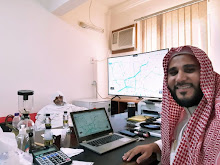Artificial Intelligence (AI) is no longer a futuristic concept reserved for science fiction. It is already shaping the way we live, work, and interact with the world. From chatbots answering customer queries to self-driving cars and advanced medical diagnostics, AI is transforming industries at an unprecedented pace. But with this transformation comes both opportunities and challenges—especially when it comes to the future of employment.
Opportunities: New Skills, New Jobs AI is creating a wide range of new opportunities in the job market. Roles such as data analysts, AI trainers, machine learning engineers, and digital ethicists are in high demand. Additionally, AI tools help employees automate repetitive tasks, giving them more time to focus on creativity, innovation, and problem-solving. For businesses, this means greater efficiency and competitiveness on a global scale. AI can also make workplaces more inclusive. For example, speech-to-text applications and AI-powered translation tools open new doors for people with disabilities or language barriers, allowing them to participate fully in professional environments.
Risks: Automation and Job Displacement While AI creates opportunities, it also raises concerns. One of the main fears is job displacement. Routine and manual jobs—such as assembly line work, data entry, or even basic accounting—are increasingly automated. According to recent studies, millions of jobs worldwide could be at risk in the coming decade due to automation. This shift could lead to increased inequality if workers are not provided with the training and support needed to transition into new roles. Low-skilled workers, in particular, may find it harder to adapt to the rapid changes brought by AI.
Impacts: Redefining Work and Skills The true impact of AI on the labor market is not just about job loss or creation—it is about job transformation. Most professions will not disappear, but they will evolve. Doctors, teachers, lawyers, and marketers, for instance, will continue to exist, but the way they work will change significantly with AI assistance. This means that adaptability, digital literacy, and lifelong learning will become essential skills for workers across all sectors. Governments, companies, and educational institutions will play a crucial role in ensuring that workers are prepared for this transition.
Conclusion: Balancing Progress with Responsibility Artificial Intelligence offers extraordinary opportunities for innovation and progress. At the same time, it poses real challenges for employment and social equity. The future will depend on how societies choose to manage this transformation: by investing in education, reskilling programs, and ethical frameworks that guide the development and use of AI. If embraced responsibly, AI can be a powerful tool that not only boosts productivity but also improves the quality of life for people around the world.



0 comments:
Post a Comment